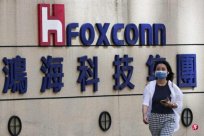
(Shanghai News) Chinese population experts said that the negative growth trend of China's population may continue until the next century, and it should accelerate the transformation of investment and demand structure of human capital.
First Financial reported, the former executive vice president of Shanghai Academy of Social Sciences and director of the Institute of Economic Research, and the chief expert of the National Self -University and Social Science Fund, Zuo Xuehuang Saturday (November 4th), pointed outThe main risks of China's population change have shifted to continuous negative growth, extremely low fertility and fast aging.
The national population in China decreased by 850,000 compared with the end of the last year, which started the process of negative population growth.Zuo Xuechang said that the stabilizing population model simulation shows that the current negative growth trend may not be reversed until 2097. As the actual fertility rate continues to downturn, this trend is more likely to continue until the next century.
With the changes in population trends, population migration is reshaping the population space distribution across China, especially in some rural areas and resource -based cities.
Zuo Xuechang believes that the gathering of population and economic activities to a few big cities is a global trend, and the trend of urbanization will not change due to the decrease in total population.He suggested that related plans need forward -looking to avoid waste of resources.
Zuo Xuefang also pointed out that decreased population and aging are forcing China's economy to shift from traditional investment and labor -intensive to relying on innovation and technological progress, and China's economic growth may slow down.At the same time, population problems are also important internal factors for domestic demand shrinkage, impact of supply, and expected weakness.
Facing the downward pressure of the economy, the left -learning fund proposed that improving the quality of population and innovation is the key to promoting economic growth.He suggested strengthening human capital investment, while reducing the tax burden of workers and reforming social security systems, to expand the consumption of residents, and to stimulate domestic demand through the transformation of public fiscal expenditure.




